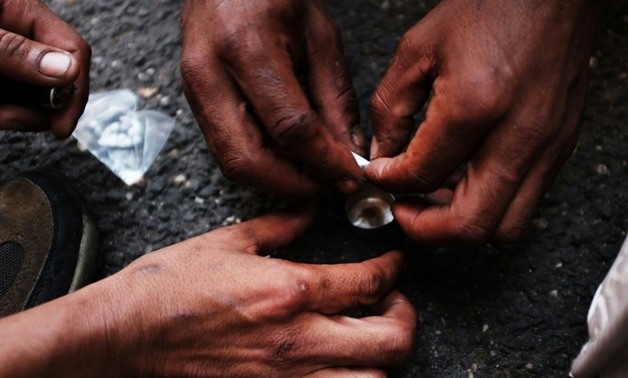
Deaths from overdoses now account for 14 percent of organ donations in the United States, compared to one percent before the start of the opioid crisis
CAIRO - 17 May 2018: Overdose deaths in the United States are fast catching up with car crashes as a source of organ donations, an unexpected consequence of the opioid crisis in North America, experts said Wednesday.
Research published in the New England Journal of Medicine confirmed what organ donation networks have been noticing for years -- a steady uptick in organs available as a result of drug abuse.
In the year 2000, organs were donated from 59 people who had overdosed nationwide. By 2016, the number had soared to 1,029.
By comparison, 1,356 donors died in car accidents that same year.
Deaths from overdoses now account for 14 percent of organ donations in the United States, compared to one percent before the start of the opioid crisis considered a public health emergency by Congress and the administration of President Donald Trump.
Overdoses make up about one quarter of organ donors in the hotbeds of the epidemic, such as the northeast, said David Klassen, chief medical officer at the United Network for Organ Sharing (UNOS).
- Not in Europe -
Overall the rise in the number of organ donors in the past five years is mainly from overdoses, researchers say, not from scientific advances or improvements in medical coordination.
"This increase is driven by a crisis, and we cannot rely on this as a source indefinitely," said study co-author Mandeep Mehra, a professor at Harvard University.
The phenomenon is almost non-existent in Europe, where overdoses are linked to fewer than one percent of organ donations.
But the trend has been seen in Canada, particularly in Vancouver, British Columbia along the west coast, where the opioid crisis has exploded since 2016.
The powerful synthetic opioid fentanyl and heroin are the main drivers, as well as prescription painkillers like Oxycodone.
The number of people who died from opioid overdoses in the United States climbed five-fold from 1999 to 2016, when it topped 42,000, health authorities say.
- Healthy organs -
Regarding the quality of organs donated, the study published Wednesday confirmed that there was no difference in survival a year after transplant among people whose organ came from a drug-related death or any other cause.
Another study, published in April, even found that the chances of survival may be higher among those who get an organ from an overdosed donor.
People who die of overdoses generally are less likely to suffer high blood pressure and diabetes than other donors.
"Donors who come from overdose deaths actually are very good donors in the sense that they are unfortunately younger people, more often than the usual donors, and therefore they're relatively in good health, and don't have the burden of the diseases associated with age," Klassen told AFP.
"They are in fact often many times relatively healthy."
Drugs are metabolized very quickly by the body post-injection, and "there is nothing necessarily toxic" in the organ, he said.
There is a higher risk of transmitting infections like HIV or Hepatitis B and C, which are often linked to drug use. In the past, donors infected with Hepatitis C have been refused.
But today, the virus is easily detectable and many hospitals accept donors, said Mehra, describing available anti-viral treatments as "highly effective."
And the risk of infection is far less than the risk of dying from lingering too long on an interminable waiting list for an available organ.


Comments
Leave a Comment